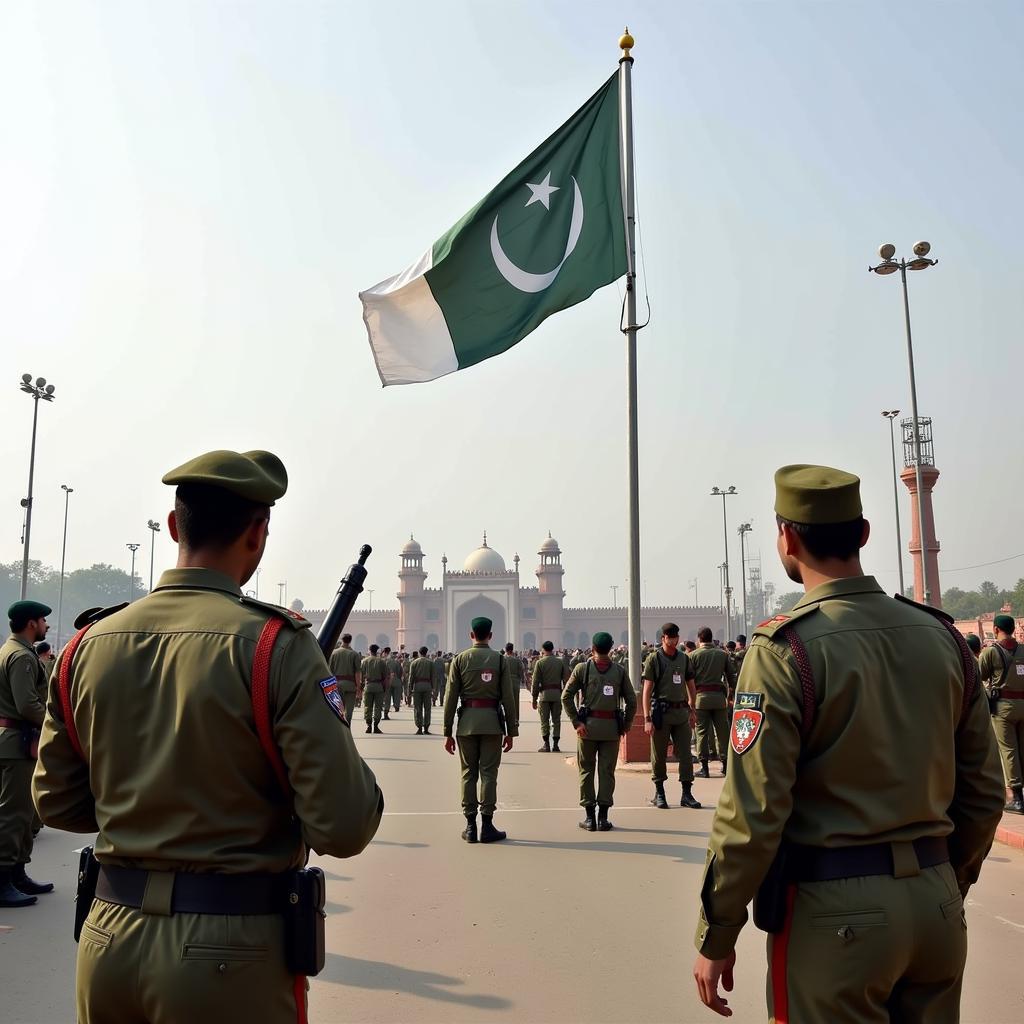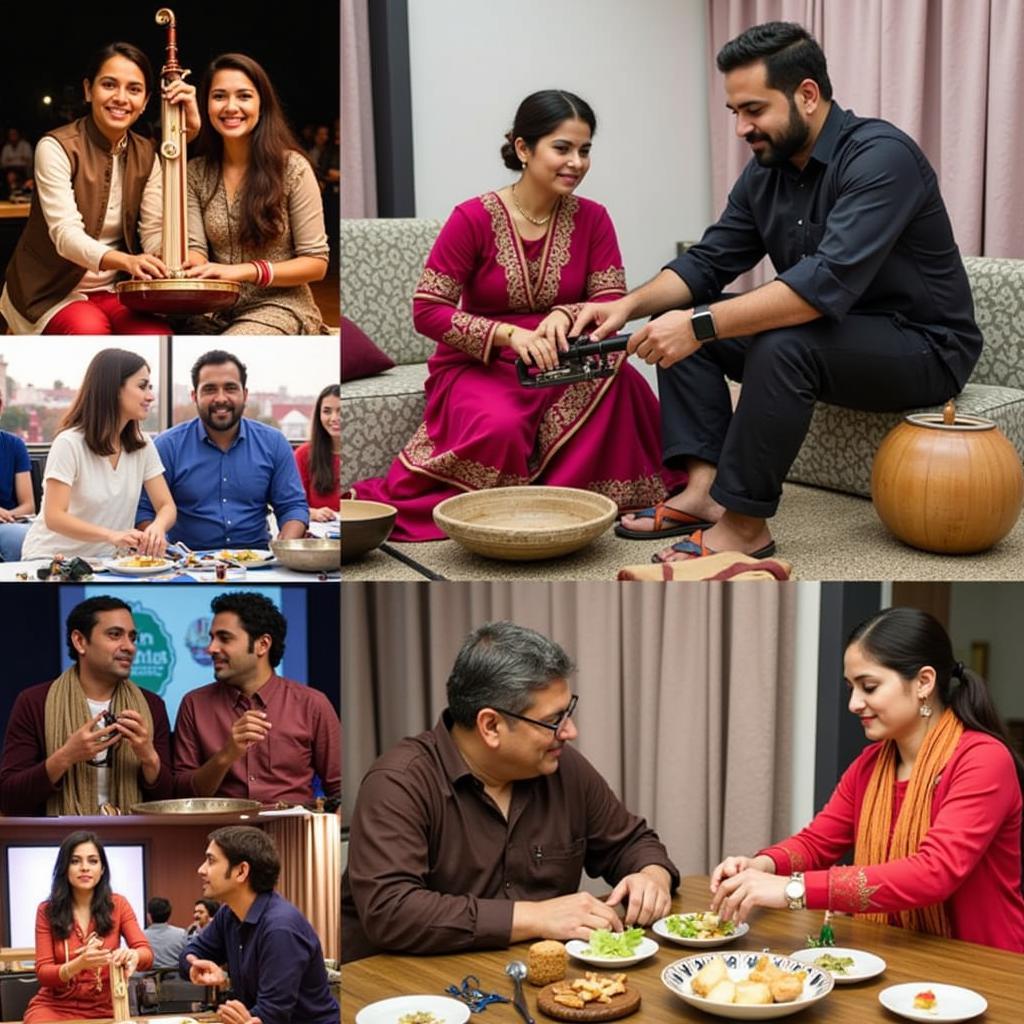Pakistan India relations have long been characterized by tension and mistrust. This intricate dynamic is shaped by historical events, political disagreements, and socio-cultural factors. Understanding this complex relationship is crucial for anyone seeking insight into the geopolitical landscape of South Asia.
Historical Roots of the Pakistan India Divide
The partition of British India in 1947 laid the foundation for the often tumultuous relationship between Pakistan and India. The Radcliffe Line, hastily drawn to demarcate the border, left unresolved territorial disputes, particularly over Kashmir. This unresolved issue has been a major source of conflict, leading to several wars and ongoing military standoffs. The legacy of partition continues to influence public perception and political discourse on both sides.
The first Kashmir war of 1947-48 solidified the division and deepened the animosity. Subsequent conflicts, including the 1965 and 1999 Kargil wars, further cemented the narrative of rivalry.
 Pakistan India Border Tension
Pakistan India Border Tension
Political and Security Challenges in Pakistan India Relations
Beyond the Kashmir dispute, other political and security challenges plague the relationship. Cross-border terrorism, accusations of state-sponsored violence, and the nuclear arms race contribute to the precarious balance of power in the region. Both countries maintain significant military deployments along the border, leading to a constant state of heightened tension. Diplomatic efforts to resolve outstanding issues have often been stalled by a lack of trust and political will.
The Siachen Glacier, another disputed territory, adds another layer of complexity to the security concerns. The harsh environment and logistical challenges make it a costly and dangerous area of contention.
The Role of International Actors
International actors, including the United States, China, and Russia, play a crucial role in shaping the dynamics of the Pakistan India relationship. Their involvement ranges from mediating disputes to providing economic and military aid. The evolving geopolitical landscape and shifting alliances further complicate the situation.
Socio-Cultural Dimensions of Pakistan India Relations
While political and security issues dominate headlines, the socio-cultural dimensions of the relationship are equally important. Shared cultural heritage, linguistic similarities, and people-to-people connections offer opportunities for bridge-building and fostering mutual understanding. However, political rhetoric and media narratives often reinforce negative stereotypes and perpetuate distrust.
Cricket, a shared passion in both countries, sometimes serves as a platform for diplomatic engagement and a reflection of the fluctuating political climate. Cultural exchanges and artistic collaborations also offer potential avenues for promoting dialogue and understanding.
 Pakistan India Cultural Exchange
Pakistan India Cultural Exchange
What is the Future of Pakistan India Relations?
Predicting the future of Pakistan India relations is challenging. The deep-seated mistrust and historical baggage pose significant hurdles to achieving lasting peace. However, both countries have a shared interest in regional stability and economic development. Increased trade, people-to-people contact, and sustained diplomatic efforts are essential for navigating the complex landscape and building a more peaceful and prosperous future.
Conclusion
Pakistan India relations remain a complex and challenging issue. While the history of conflict and unresolved disputes casts a long shadow, opportunities for cooperation and dialogue exist. Addressing the underlying causes of tension, fostering mutual understanding, and engaging in sustained diplomatic efforts are crucial for building a more stable and peaceful future for both nations. The keyword “Pakistan India Xxxx” underscores the multifaceted nature of this relationship and the need for continued analysis and engagement.
FAQ
- What is the main source of conflict between Pakistan and India? The primary source of conflict is the territorial dispute over Kashmir.
- Have Pakistan and India ever engaged in diplomatic talks? Yes, numerous diplomatic efforts have been made, though often with limited success.
- What is the role of international actors in this relationship? International actors play a significant role in mediating disputes and providing aid.
- Are there any cultural connections between Pakistan and India? Yes, significant shared cultural heritage and linguistic similarities exist.
- What is the future of Pakistan India relations? The future is uncertain, but opportunities for cooperation exist alongside ongoing challenges.
- What were the key turning points in Pakistan India relations? The partition of 1947 and subsequent wars over Kashmir were major turning points.
- What are some potential areas of cooperation between Pakistan and India? Trade, cultural exchange, and addressing shared security threats are potential areas of cooperation.
When you need assistance, please contact Phone Number: +923337849799, Email: [email protected] or visit our address: Dera Ghazi Khan Rd, Rakhni, Barkhan, Balochistan, Pakistan. We have a 24/7 customer service team.